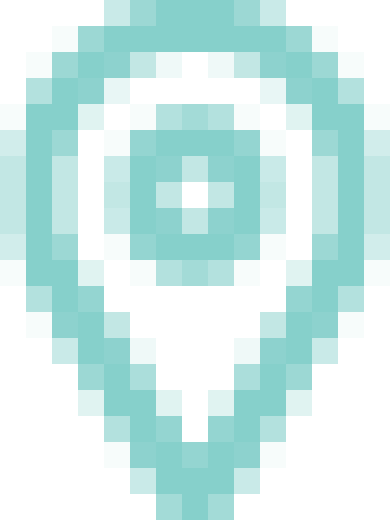Emergency Pimple and
Cyst Treatment
About Our Emergency Pimple/Acne 911 Treatment in Vancouver, BC
There is nothing worse that preparing for a special event; a prom, party or wedding (particularly your own)—only to discover a deep cyst or pimple threatening to mar your complexion.
When you require a quick fix that can’t be solved with concealer alone, our doctors at EverYoung will administer an injection of cortizone into the pimple, cyst, nodule or papule in a quick 5 minute procedure that reduces the inflammatory reaction. The offending pimple or blemish will start to subside within a few hours, often disappearing completely within 24 hours.
While this isn’t a treatment for chronic acne, it’s an excellent solution for a one-of-a-kind-event when looking your best is imperative; so don’t panic, call EverYoung and book a consultation with one of our medical doctors to determine if this treatment is right for you.
Emergency Pimple & Cyst Treatments at a Glance

1 Treatment

Days

None

Results
1 Treatment

of Results
Days

None

Low

Low

5 Minutes

Right away

Time
5 Minutes

Work
Right Away
FAQ
Cortizone is a steroidal hormone naturally found in the adrenal gland. A cortizone shot speeds up healing of pimples, blemishes or cysts by dramatically reducing the inflammation that caused the flare-up.
Yes, and although very deep, painful cysts may take longer to respond, it will still speed up healing time significantly faster than if left untreated.
The injection can cause a sight dip in the skin, but our physicians are experienced injectors, and a diluted concentration is used to reduce this risk. Usually if a dip occurs, it is temporary and will resolve over the course of a few months. Early treatment also diminishes the likelihood of a naturally occurring scar; which is common in the wake of untreated acne.
This is a very quick treatment, completed in a few seconds. When necessary, a numbing agent may be applied prior, particularly for deep or painful cysts.
To prevent a pimple from developing into a cyst, avoid picking or squeezing it, maintain good skincare hygiene, and consider over-the-counter or prescription treatments recommended by a dermatologist.
Do not try to pop, squeeze, or pick at a cystic pimple, as this can worsen inflammation, increase the risk of scarring, and introduce infection.
Cystic pimples can take several weeks to heal, and the exact duration can vary depending on individual factors, the size of the cyst, and how it’s managed.
To get rid of a cystic pimple under the skin, consult a dermatologist who can provide treatments like corticosteroid injections, drainage, or prescription medications tailored to your specific case.
To prevent a cyst from spreading, avoid squeezing or picking at it, keep the area clean and moisturized, and consult a dermatologist for appropriate treatment options.
If you leave a cystic pimple alone, it may gradually resolve on its own over several weeks to months, but it can also persist or become more painful without treatment.
Cystic acne can be worsened by factors like hormonal fluctuations, genetics, certain skincare products, and picking or squeezing the lesions.
Cystic acne lesions have a higher risk of leaving scars, especially if they are picked, squeezed, or not properly treated.
Applying ice to cystic acne can help reduce inflammation and provide temporary relief from pain and swelling, but it won’t eliminate the acne or prevent scarring.
Oral antibiotics like doxycycline, minocycline, or tetracycline are often prescribed by dermatologists to help reduce inflammation and control bacteria in the treatment of acne cysts.
A cystic pimple is typically a large, painful, deep-seated bump beneath the skin’s surface, often red or swollen, and may not have a visible head like other types of pimples.
The main cause of cysts can vary depending on the type of cyst, but they are often caused by factors such as blocked hair follicles, infection, or genetic predisposition.
Cysts are typically removed by a healthcare provider through procedures such as drainage, excision, or in some cases, laser therapy or corticosteroid injections.
The fastest way to shrink a cyst is to have it drained or treated by a healthcare provider, as at-home remedies may not be as effective for rapid reduction.
The ease of removing a cyst depends on various factors, including its size, location, and type; some cysts may be removed easily, while others may require more complex procedures.
The contents of a cyst can vary but often include fluid, pus, or other semi-solid material, and in some cases, they can contain hair or other tissue elements.
A dermatologist or a healthcare provider with experience in dermatological procedures should remove a cyst on the face to ensure proper evaluation and minimize the risk of scarring or infection.
Dermatologists typically remove cysts on the face through a procedure that involves making a small incision, draining the cyst’s contents, and sometimes removing the cyst wall to prevent recurrence.
The time it takes to fully cure a cyst can vary depending on factors like the type and size of the cyst, the treatment method used, and individual healing, but it may take several weeks to months for complete resolution.
Yes, most cysts are treatable, and treatment options can range from drainage or excision by a healthcare provider to observation in cases where the cyst is not causing symptoms or concern.
While there’s no specific food that can prevent cysts, maintaining a balanced diet with plenty of fruits, vegetables, and whole grains can support overall skin health and may reduce the risk of certain types of cysts.
The fastest way to heal a cyst on your face is to have it drained or treated by a healthcare provider, as at-home remedies may not provide rapid results.
A skin cyst should be removed by a healthcare provider when it becomes painful, infected, rapidly grows, or causes cosmetic concerns, as well as when it is associated with suspicious or concerning symptoms.
A cyst can become infected when bacteria enter the cyst through a break in the skin, causing inflammation, pain, and sometimes the formation of pus.
Most skin cysts are benign and not harmful, but they can become painful, infected, or cosmetically bothersome, leading to the need for removal or treatment in some cases.
Cysts on the face can develop due to factors such as blocked hair follicles, skin trauma, infection, or genetic predisposition.
To treat an infected pimple on your face, gently cleanse the area, apply an over-the-counter antibiotic ointment, and avoid picking or squeezing the pimple, or consult a dermatologist for further guidance if needed.
Cystic pimples often benefit from drainage, which can be performed by a healthcare provider, as it helps relieve pain, reduce inflammation, and promote healing.
Cystic pimples are a type of severe acne lesion and can occur, but they are not considered normal in the sense that they indicate an underlying skin condition that may require treatment.
Sweating can exacerbate cystic acne by potentially clogging pores and increasing inflammation, but individual responses vary.
Stress can exacerbate cystic acne by triggering hormonal fluctuations and inflammation, potentially leading to acne flare-ups in some individuals.
Cystic acne scars can take several months to years to fade, and the timeline can vary depending on the type of scars and individual skin healing factors.
The best facial for cystic acne typically involves professional treatments like chemical peels, microdermabrasion, or targeted laser therapies performed by a dermatologist, along with a personalized skincare regimen.
Cyst scars can be permanent, but various treatments like laser therapy, chemical peels, or microneedling may help improve their appearance.
Preventing cystic acne involves maintaining a consistent skincare routine, avoiding picking or squeezing pimples, managing stress, and seeking dermatological treatment if needed.
To stop a cystic pimple from growing, avoid picking or squeezing it, apply a warm compress to reduce inflammation, and consider over-the-counter or prescription treatments recommended by a dermatologist.
To prevent a cystic pimple from scarring, avoid picking or squeezing it, and seek prompt treatment from a dermatologist to reduce inflammation and promote proper healing.
Determining whether acne is bacterial or hormonal often requires a dermatologist’s evaluation, but hormonal acne typically appears in specific patterns (like on the lower face and jawline) and may coincide with menstrual cycles, while bacterial acne may have a more widespread and inflamed appearance.
If cystic acne pops on its own, gently clean the area, apply an antibiotic ointment, and avoid picking or squeezing further to minimize the risk of infection and scarring.
Cold is generally better for calming inflammation and reducing redness associated with acne, while heat can be helpful for increasing blood circulation but may exacerbate inflammation in some cases.
Antibiotics can help reduce inflammation and control bacteria in a cyst, but they are often used in conjunction with other treatments, such as drainage or excision, to fully heal a cyst.
Common side effects of antibiotics for acne can include gastrointestinal issues, photosensitivity, and the development of antibiotic-resistant bacteria over time.
Oral antibiotics like doxycycline, minocycline, or tetracycline are often prescribed by dermatologists to help reduce inflammation and control bacteria in the treatment of cysts.
Book an
Appointment

ALL SERVICES
- Acne treatment
- BBL- IPL Photofacial
- Body Fx
- Botox
- Coolsculpting
- Dermal Fillers
- Morpheus8
- Sylfirm X
- Sofwave
- Fotona StarWalker®
- Fractora
- Hair Loss / Balding
- Hydrafacial MD
- Laser Hair removal
- Alma Harmony® XL Pro
- Alma Harmony® XL Pro ClearLift™
- Alma Harmony® XL Pro Dye VL Laser
- Lip augmentation
- Laser Genesis
- Microdermabration
- Microneedling
- Non-surgical Facelift
- Pigmentation Treatment
- PDRN Salmon DNA
- Picosure
- Prp Blood Facial
- Red and vessels treatment
- RF Collagen Induction
- Ultherapy
- Thermage
- Thermage® CPT™
- Thermage® FLX
- Vaginal Rejuvenation
Where to Find Us?
Downtown Vancouver

MondayClosed
Tuesday10:00am–6pm
Wednesday10:00am–6pm
Thursday10:00pm–6pm
Friday10:00am–6pm
Saturday10:00am–6pm
SundayClosed
 604-706-1503 (English)
604-706-1503 (English) 604-305-2098 (Chinese)
604-305-2098 (Chinese)Metrotown, Burnaby

Monday10:00am–6pm
Tuesday10:00am–6pm
Wednesday10:00am–6pm
Thursday10:00pm–8pm
Friday10:00am–6pm
Saturday10:00am–6pm
Sunday10:00am–6pm
 604-305-2098 (English)
604-305-2098 (English) 604-305-2098 (Chinese)
604-305-2098 (Chinese)Free Parking Available
GET DIRECTIONSPort Coquitlam

Monday10:00am-6pm
Tuesday10:00am-6pm
Wednesday10:00am-6pm
Thursday10:00am-6pm
Friday10:00am-6pm
Saturday10:00am-6pm
SundayClosed
 604-210-6319 (English)
604-210-6319 (English) 604-305-2098 (Chinese)
604-305-2098 (Chinese)Free Parking Available
GET DIRECTIONSNorth Vancouver

MondayClosed
Tuesday10:00am–6pm
Wednesday10:00am–6pm
Thursday10:00pm–6pm
Friday10:00am–6pm
Saturday10:00am–6pm
SundayClosed
 604-265-7044 (English)
604-265-7044 (English) 604-305-2098 (Chinese)
604-305-2098 (Chinese)Free Parking Available
GET DIRECTIONSWith locations in Downtown Vancouver, North Vancouver, Burnaby & Port Coquitlam, we proudly serve people throughout greater Vancouver and the lower mainland with all of their acne, skin and beauty needs.
Contact us now to book an appointment.




